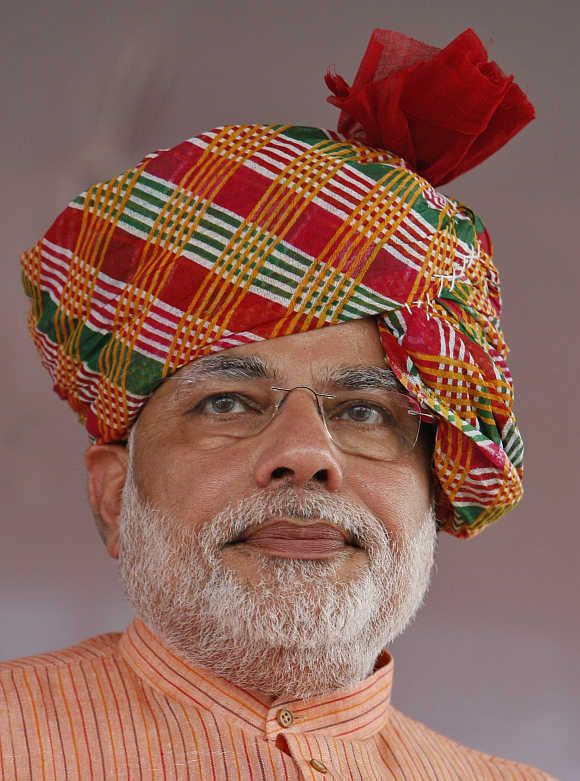 Months after his meeting with Gujarat Chief Minister Narendra Modi, a lawmaker has praised his "honest, transparent and open" governance, which he said is attracting American companies to invest heavily in the Indian state.
Months after his meeting with Gujarat Chief Minister Narendra Modi, a lawmaker has praised his "honest, transparent and open" governance, which he said is attracting American companies to invest heavily in the Indian state.
"During a meeting with the leadership of companies like Ford and Tata Motors, who are investing billions in new factories in Gujarat, I was impressed to learn that these policies are being implemented in good faith and with the cooperation of American companies," Congressman Aaron Schock said in an op-ed of the August issue of the Peoria Magazine.
"These companies chose specifically to invest in this region of India because government was honest, transparent and open. When the Gujarat government promised to build a road to help them move goods to market, it delivered," Schock wrote.
However, Schock who met Modi in Ahmadabad in March did not specifically mention him by name in the op-ed.
"Over the last several years, Gujarat, with a population larger than Texas and California combined, has experienced an impressive 10-per cent annual economic growth. What I took away from meeting with officials in Gujarat trying to explain this success was their ardent focus on eliminating corruption in the region, which continues to plague the country as a whole," he wrote.
"Their policies to increase transparency, eliminate 'pay-to-play' politics, and 'cut the red tape while rolling out the red carpet' were refreshing to hear," said Schock, who is a member of the House Ways and Means Committee and its Subcommittee on Trade.
Describing India in many ways a study in contradictions, he said unfortunately, while success stories can be found in Gujarat, much of the rest of the country has not followed.
"With all the rewards seemingly in reach for companies who choose to invest in India-a stable democracy; the fastest growing market base in the world, with access to important
trade routes; and an educated population in need of medicines, services, know-how and goods-many are still rightfully hesitant to undertake major investment here," he said.
Rampant government corruption has companies worried about local officials knocking at their door looking for a handout, he said, adding that a protectionist domestic sourcing regime has multinationals afraid to produce goods in a country that might ultimately sock them with new fines.
"Pharmaceutical companies fear bringing life-saving drugs to market, only to have their patents thrown out by a slow-moving judicial system that always sides with domestic
interests over foreign multinationals. Large manufacturers are afraid to invest the resources needed for large-scale operations in a country whose transportation system makes the gridlock in DC look like a Sunday summer cruise," he wrote.
"Finally, US technology companies and investors fear putting resources into a country with a discriminatory market access policy that favors any domestic business interests over the rule of international trade law," he said.
"At best, it's clear that great opportunity exists, yet significant challenges remain. At worst, one wonders if other emerging markets will replicate the 'India model' of
international business behavior, taking close note of the response from the international community to these impediments to foreign investment," he added.







